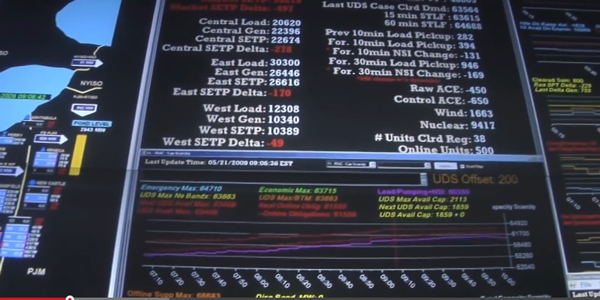By Rich Heidorn Jr.
FERC on Thursday approved a final rule on recovering from balancing contingency events and proposed a second rule to ensure that remedial action schemes do not compromise reliability.
Recovery from a Balancing Event
The final rule approves NERC reliability standard BAL-002-2, which seeks to ensure that balancing authorities and reserve sharing groups can use reserves to balance resources and demand to recover from system contingencies and restore their area control error (ACE) to pre-contingency levels (RM16-7).
In response to opposition from NERC, the Edison Electric Institute and most RTOs and ISOs, the commission backed off from a proposal that would have required reliability coordinators to authorize extensions of the 15-minute ACE recovery period.
In its Notice of Proposed Rulemaking in May, the commission said it was unclear how an entity would prepare for a second contingency during the extension under NERC’s proposal. A balancing authority operating out-of-balance for an extended period of time is “leaning on the system” by relying on external resources, which could affect other entities within an interconnection, the commission said.
EEI and the RTOs said that the requirement “would result in unnecessary duplication of requirements adding no tangible benefit to reliability while needlessly increasing the compliance burden.”
Instead, the commission’s final rule adopts a proposal by Arizona Public Service requiring only that an entity that is unable to recover ACE because of a second disturbance inform the reliability coordinator and provide it with a recovery plan.
The commission also approved NERC’s proposal that demand-side resources that are technically capable be included as contingency reserves.
Remedial Action Schemes NOPR
The commission also approved a NOPR backing NERC reliability standard PRC-012-2, which is designed to ensure that remedial action schemes (RAS) do not introduce “unintentional or unacceptable” reliability risks (RM16-20).
The standard defines an RAS as a plan to detect abnormal system conditions and automatically take corrective actions — such as tripping generation or load, or reconfiguring a system — to maintain stability and limit the impact of cascading events.
The NOPR also would withdraw pending standards PRC-012-1, PRC-013-1 and PRC-014-1 and retire standards PRC-015-1 and PRC-016-1.
The commission solicited comment on a proposed clarification that the new standard will not supersede system performance obligations under reliability standard TPL-001-4, which limits “non-consequential load loss” to 75 MW for certain contingencies.
Rehearing Denied on GMD Rule
FERC also rejected rehearing requests by EEI and others on its September order requiring grid operators to assess and protect against the threat of geomagnetic disturbances (RM15-11-001). (See FERC Approves GMD Reliability Standard.)
EEI had challenged the standard’s (TPL-007-1) implementation plan, saying it failed to account for the impacts of changes to the definition of a benchmark GMD event.
The commission said EEI’s concern was “premature.”
“At this time, the commission has no way of knowing what impacts the modified benchmark GMD event definition may have on the approved implementation plan because NERC has not yet developed or proposed a revised” definition, FERC said. It added that NERC may propose a longer implementation plan if needed as a result of a revised definition.





